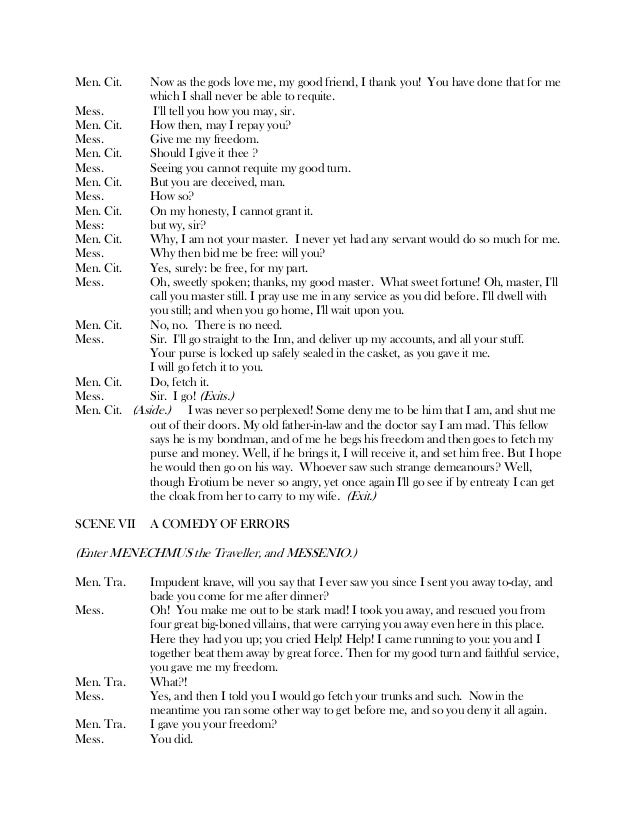Menaechmi By Plautus 8,4/10 278 reviews
Shakespeare's Sources for The Comedy of Errors directory search Shakespeare's Sources for The Comedy of Errors The plot of Shakespeare's The Comedy of Errors was taken from the play The Menaechmi, written by the ancient Roman dramatist, Plautus. At the time of writing the play (earlier than 1594), Shakespeare did not have access to a translated copy of The Menaechmi -- the first being published in 1595, so he probably read the text in its original Latin. Some theorize that a copy of the translated text by William Warner was in circulation before its actual publication date, and some try to make comparisons between Warner's work and Shakespeare's. But these comparisons are so weak that they in no way prove that Shakespeare had access to the translated copy. In The Comedy of Errors, the main plot is very similar to the work of Plautus, but Shakespeare deviates from his source by adding a second set of twins, and excluding three of the main characters. Shakespeare keeps the Menaechmi, Mulier, Messenio, Erotium, and Medicus, and renames them Antipholi, Adriana, Dromio, the Courtesan, Dr. Pinch, respectively.
- Plautus Menaechmi Summary
- Menaechmi By Plautus Summary

184 B.C.) was a Roman writer. His theatrical genius, vitality, farcical humor, and control of the Latin language rank him as Rome's greatest comic playwright.

Plautus Menaechmi Summary

Menaechmi By Plautus Summary
Of course, it is Shakespeare's additions and embellishments that make The Comedy of Errors so memorable. As Robert Dudley French elaborates in the Yale edition of the play: Of more importance than these differences in treatment are certain significant additions to the rather simple plot, which appear in The Comedy of Errors, broadening the humor and making the comedy a richer play than the Menaechmi. In Plautus, only one of the twin heroes is attended by his slave, and there is no suggestion of the delightful absurdity of a second pair of identical twins, attendant upon the first. The presence of the two Dromios has enabled Shakespeare to begin the merry game of confusion earlier in the play and to continue it to the end with unfailing variety in the complications. The substitutions of Luciana for Senex not only replaces a stock character with a very real and appealing person, but also provides an opportunity for an added sentimental interest and for some love-making in rhymed verse, which anticipates the poetry of Romeo and Juliet. (French, 79) The sub-plot with Egeon and his quest to find his sons could have been purely an invention of Shakespeare, but he could have looked to the medieval text the Gesta Romanorum, a collection of stories translated into English in 1577 by the sadly forgotten Richard Robinson.


